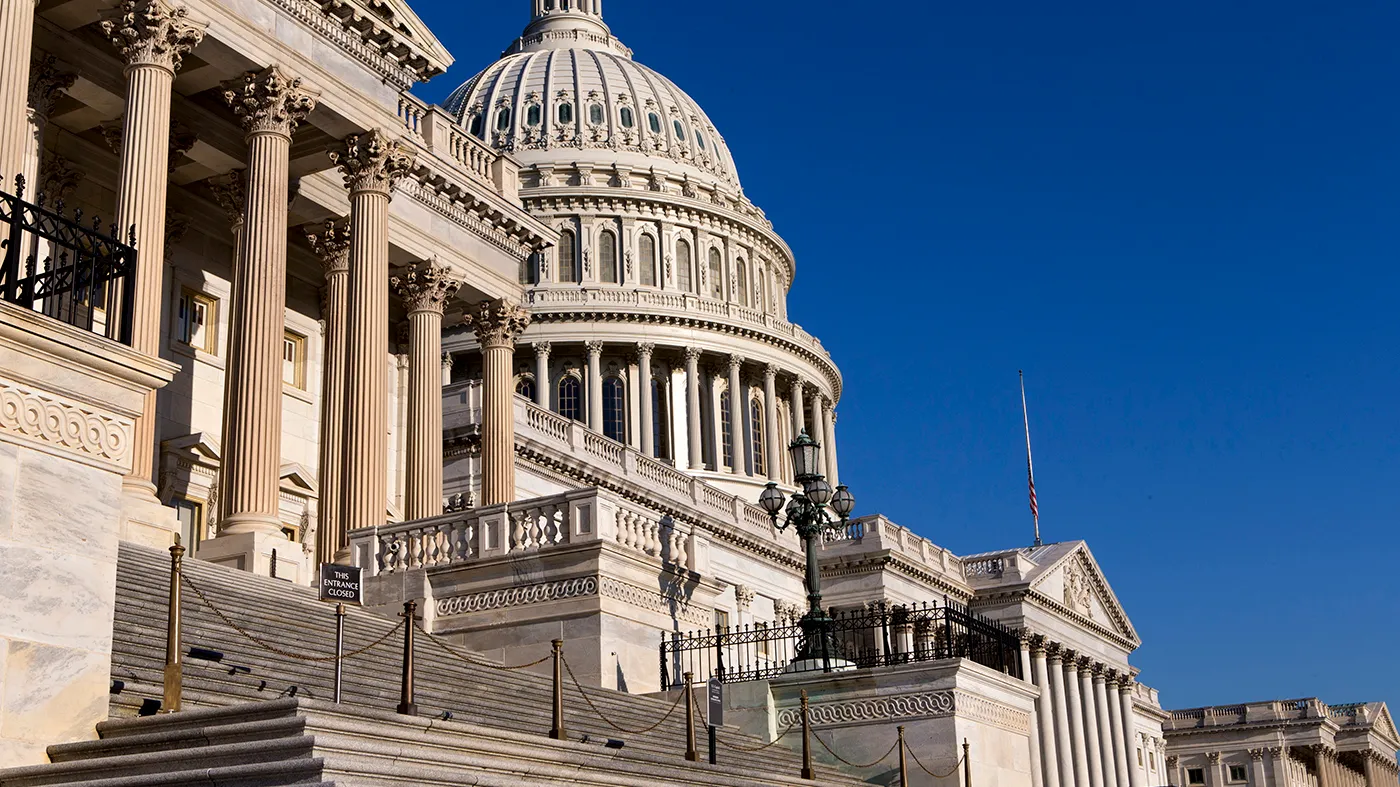By Alexis Simendenger
As Republican lawmakers gear up for the 119th Congress, the House and Senate are bracing for differing challenges in the first 100 days of President-elect Trump’s administration.
Senate Republicans must contend with a slate of controversial Cabinet nominees. Chief among them: Defense secretary nominee Pete Hegseth; former Rep. Tulsi Gabbard (Hawaii), Trump’s pick for director of national intelligence; and FBI director nominee Kash Patel.
Hegseth, especially, has drawn increased criticism from Republican senators after skepticism about his qualifications for the job and allegations of sexual misconduct, excessive drinking and financial mismanagement in previous roles. Hegseth faces a very tough path to confirmation in the Senate, and his bleak prospects have been communicated directly to the Trump transition team, which is now mulling other options.
Reports began swirling Tuesday that Trump is considering replacing Hegseth with Florida Gov. Ron DeSantis or Rep. Mike Waltz (R-Fla.) — the current national security adviser pick. But Hegseth himself said he will not withdraw, writing in a Wall Street Journal op-ed that he “[looks] forward to an honest confirmation hearing with our distinguished senators — not a show trial in the press.”
Senate sources told The Hill’s Alexander Bolton and Brett Samuels there is a block of likely “hard no’s” in the Senate GOP conference and identified Sens. Susan Collins (R-Maine), Lisa Murkowski (R-Alaska) and Mitch McConnell (R-Ky.) as lawmakers who view Hegseth’s nomination very skeptically.
GOP lawmakers told The Hill they don’t want to publicly call for Hegseth to resign on the basis of anonymous allegations. But some Republicans are hoping to be spared the headache and embarrassment of public confirmation hearings that could feature testimony from women who have accused Hegseth of sexual misconduct or former colleagues who have accused him of unprofessional behavior.
“I don’t know that there’s a real clear path,” said one Republican senator, who added that colleagues “are very apprehensive” about Hegseth’s nomination.
“It’s damaging to the president,” the senator added. “It doesn’t help us in the Senate.”
▪ The Hill’s The Memo: Hegseth’s troubles open up Trump World palace intrigue.
▪ The Washington Post: Hegseth’s history with alcohol shadows his Pentagon selection.
The House GOP confronts arithmetic. Speaker Mike Johnson’s (R-La.) conference will have zero room for error starting in January — literally. When Rep. John Duarte (R) conceded to Democrat Adam Gray in California’s 13th Congressional District on Tuesday night in the final uncalled House race of the 2024 cycle, he solidified the GOP’s 220-215 majority in the lower chamber.
But that slim edge is set to narrow even more — and quickly — putting Johnson and his leadership team in a bind as they chart lofty goals for the next two years, write The Hill’s Mychael Schnell and Emily Brooks.
“Do the math,” Johnson told reporters Wednesday morning. “We have nothing to spare.”
Former Rep. Matt Gaetz (R-Fla.) will not take the oath of office in January after his failed bid for attorney general; Waltz is set to resign on Jan. 20 to become national security adviser; and Rep. Elise Stefanik (R-N.Y.) is expected to leave the chamber to be the U.S. ambassador to the United Nations. Their absences would shrink the GOP majority to 217-215 early next year — leaving a zero-vote margin for the Republican conference on party-line votes, assuming full attendance.
That means, for example, if all House Democrats vote against a GOP piece of legislation and one Republican breaks from the party and votes with Democrats, the final tally would be 216-216 — sinking the GOP effort, since a tie loses in the lower chamber.
In response, Rep. Pete Aguilar (D-Calif.), the chair of the House Democratic Caucus, sent an early message to his troops: Attendance will be crucial given the razor-tight margins.
“It’s important for every member to come to work and to do their job,” Aguilar said during a press briefing in the Capitol. “That’s what we’re telling our caucus.”
▪ The Hill: Rep. Jerrold Nadler (D-N.Y.) conceded his bid to be the top Democrat on the powerful Judiciary Committee to Rep. Jamie Raskin (D-Md.) — a stunning shift on a committee that’s sure to play a considerable role in the oversight of the second Trump administration.
▪ The Hill: The hardline conservative House Freedom Caucus came out against “unpaid” disaster aid legislation in an official statement on Wednesday, urging “not one more cent to the Biden administration.”
Democrats have recently been dreaming about winning Texas and Florida, but the results have been a nightmare.
Florida used to be a purple state. President Obama won it twice, but since 2012, the Sunshine State has moved right. Democrats over the last several years maintained they could win statewide again.
In 2022, Sen. Marco Rubio (R-Fla.) was in an apparently tight match with then-Rep. Val Demings (D-Fla.). The polls showed the race in single digits, though Rubio ultimately triumphed by more than 16 points. This year, Democrats claimed they could take out Sen. Rick Scott (R-Fla.), who won by double digits.
The last time Democrats won statewide in Texas was in 1994, and party leaders have expressed hope that the state is turning a lighter shade of red and trending purple. But hope isn’t a strategy. Sen. Ted Cruz (R-Texas) easily won his race this year by 8.5 points. The worst trend here for Democrats is that like Trump, Republicans in Florida and Texas outperformed the polls. Trump, meanwhile, won each of those two states by more than 13 points on Nov. 5.
Democrats have a lot of work to do after the GOP captured the White House and Congress. They would be wise to focus on the seven battlegrounds they lost to Trump and — perhaps — revisit Florida and Texas down the road.

